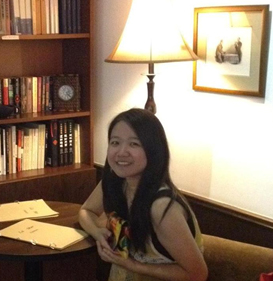Who’s Afraid of Being an Events Manager?
By Kelly Tse

It was a rather nerve-wracking moment, as I reckon retrospectively – the moment when I assumed the role of an Events Manager in the School of English last year. Having just completed my MPhil studies, I knew almost next to naught (!) about the ins and outs of organizing and directing academic events despite the fact that I was briefed about my remit well in advance. Here’s the blunt truth: the only major event, if it qualified as an *event*, I had managed prior to taking on my new official title was really my own research project … So how does one make that stupendous leap from managing one single and somewhat sequestered event to coordinating conferences that necessitate collective endeavour by virtue of their more complex and convoluted nature? After more than a year of on-the-job training, perhaps I am now in a better position to offer a few pointers:
Always start with some to-do lists. I can’t overemphasize the importance of this. I used to take pride in having a good memory, but my brain started to fail me when I began my work on conference organization. Let’s face it, an Events Manager works with multifarious parties at one time: organizers, finance officers, I.T. officers, estates people, security guards, hotel staff, caterers, sponsors, delegates, student helpers, etc. (and no, I am not weaning myself from making lists!), so there is no way one could manage one’s tasks in an efficient fashion without resorting to some duty lists. On occasion, I would even take a break and create my own shopping list amidst a hectic schedule, a small and symbolic act of defiance against the tedium that is the actual task listing!
Work closely with your team. Managing events such as conferences is not a solitary task, but a collective undertaking that demands the dedication of all committee members on board. Make sure you communicate your vision and plans to your team. Discuss with your teammates about their respective roles and delegate responsibilities accordingly. Some remarkable and at times requisite ways of fostering a sense of team spirit include sampling delectable cuisines together when choosing a suitable eatery for your event, or having a relaxing walkabout around the conference venue. Bear in mind, though: working with a functional team also entails being open to honest comments and criticism from your teammates.
Try to be VERY patient. Obviously, this is always easier said than done, especially when one gets bogged down with two dozen emails in one morning, each demanding some urgent attention and action. I tell you what, take a deep breath and take action. Plough through them and check them off your list. (I did feel a certain ecstatic pleasure about the latter bit because it meant I had accomplished quite a lot, if I may say so myself …). Getting cankerous and irascible because of an email bomb, however tempting such an emotional revolt might be, will likely devitalize your team, hence forestalling further progress. Just keep calm and keep going. Champagne awaits at the end of the tunnel!!
Remain flexible, as far as possible. A most crucial facet of organizing an event, I believe, pertains to managing and living with the unknown. Being able to cope with the unforeseen is indubitably key to the delivery of successful events. For instance, on discovering that our event venue was plagued by mosquitoes, we went ahead and bought insect repellent at once lest we become reluctant blood donors to biting bugs! Of course, the conditions of the venue are but one capricious element among many, yet if you are flexible enough to think up an alternative, a plan B, you are less likely to be subject to the whims of luck. From my experience, staying flexible really means that one has to be resourceful and come up with creative fixes at critical junctures.
To be sure, this is by no means an exhaustive list about surviving the challenge of being an Events Manager. But with the above attributes, you don’t have much to fret about when navigating uncharted waters. And trust me, the moment when your delegates start sending appreciative emails to thank you and your team for what you’ve done, you will begin to develop some incurable form of post-conference nostalgia.

Our apologies, you must be logged in to post a comment.